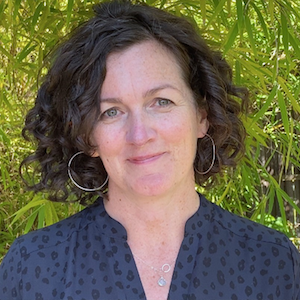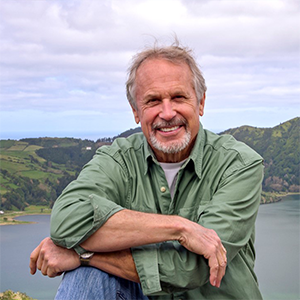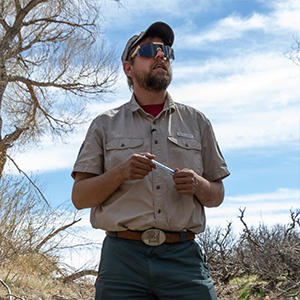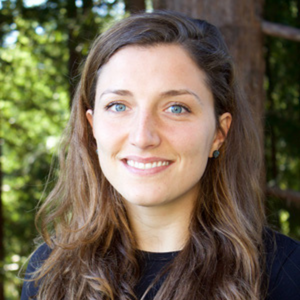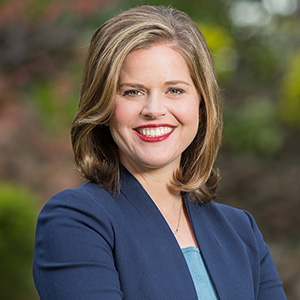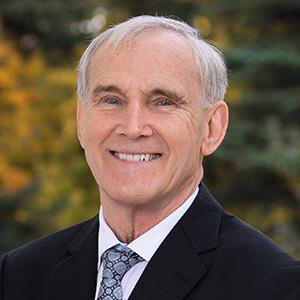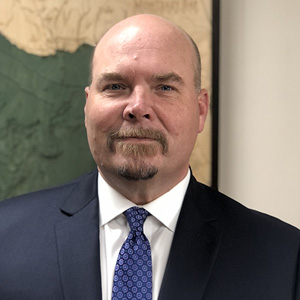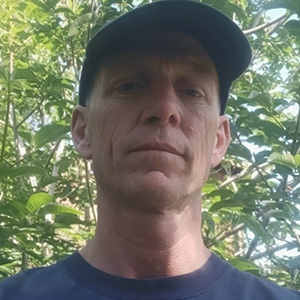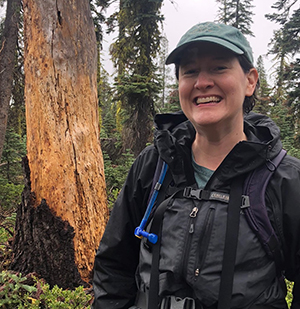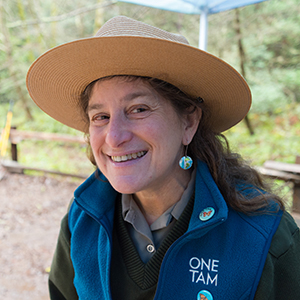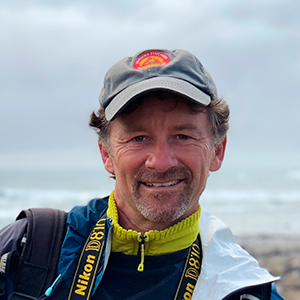ABOUT THE SERIES
Parkside Chats
This virtual event series brings together park lovers, experts, and community voices to offer insights on California state parks. It’s a way to stay connected to California’s parks from wherever you are! Each event is typically at lunchtime and lasts an hour or less. We encourage you to attend and ask questions. You can also watch the recordings on our YouTube channel afterward.
PREVIOUS EVENTS
Parkside Chats: Honoring Indigenous Heritage in California State Parks
Learn how California State Parks is uplifting Native voices through inclusive interpretation and community partnerships. Hear from Taylor Moore, Museum Curator I at the State Indian Museum and Sutter’s Fort State Historic Park, on how these historic sites are re-centering Indigenous perspectives. From new exhibits highlighting the Native American Graves Protection and Repatriation Act (NAGPRA) to updates on inclusive interpretive planning at Sutter’s Fort, this conversation explores how state parks are honoring Indigenous heritage and building deeper partnerships with tribal communities.
SPEAKERS
Taylor Moore, Museum Curator I at the State Indian Museum and Sutter’s Fort State Historic ParkTaylor is a first-generation graduate from California State University, Sacramento with degrees in Child Development, Social and Community development as well as Ethnic Studies, Native American Studies. Taylor’s passion lies in working with Indigenous communities and after graduating, she joined California State Parks where she has worked in Capital District's Cultural Resource program. Through this work, Taylor gained a deep knowledge of preventive conservation, preservation methods, and care of historic facilities and museum objects, with specialized knowledge of museum collections practices and procedures. In 2023, Taylor became the first Native curator for the State Indian Museum and Sutter's Fort State Historic Park. In her new role, she has established working relationships with NAGPRA and Archeology departments to help facilitate in the repatriation of cultural items back to their tribes. She works with cultural practitioners and experts within the Native community to better understand and care for Native belongings that are in State Parks Museum collections. |
Insider Speaker Series: Creating a Culture of Inclusion in Parks
At California State Parks Foundation, we want to ensure every visitor feels a sense of belonging in state parks. That sense of belonging is fostered by positive park experiences such as relevant programming, welcoming park staff, and amenities that are inclusive and accessible. California state parks belong to all Californians, and it’s up to us to create a culture of inclusion in these spaces. Learn how parks and partners across the state are creating welcoming and inclusive spaces, as well as reducing barriers to access.
SPEAKERS
Efraín Chávez-Delgado, Director of Grandmaking at Justice OutsideBorn and raised in Stockton, California, Efraín Chávez-Delgado grew up shifting in and out of the city and its rural and agricultural outskirts. Rotating crop fields, the Delta and a couple of backpacking trips to Yosemite during high school strengthened his personal and academic interest for the outdoors. He later earned a B.S. in Environmental Science and Management at UC Davis. Prior to working with Justice Outside, he has worked as an outdoor/gardening educator, a food-justice program coordinator and community organizer. In that time, he enjoyed gaining skills like general gardening practices, popular education praxis, curriculum development, coalition building and committee management. |
|
John Fraser, Capital District Superintendent for California State ParksJohn Fraser is the Capital District Superintendent for California State Parks. In that role he manages the California State Railroad Museum, Old Sacramento State Historic Park, Sutter’s Fort State Historic Park, Leland Stanford Mansion State Historic Park, the State Indian Museum, and the State Capitol Museum. John came to the Capital District from State Parks headquarters, where he served as Special Assistant to the Deputy Director of Park Operations and the acting Chief of the Interpretation and Education Division. John gained experience as a State Historian, preserving and protecting the many historic treasures in the State Parks system. He is a Northern California native and has lived in the Sacramento area since 2004. |
Insider Speaker Series: Preserving Biodiversity in California
Did you know that California is a global biodiversity hotspot? California’s unique geography and climate support a multitude of habitats and a staggering array of plant and animal species — more than any other state in the country. In fact, 65% of California’s more than 700 native invertebrate species — including mammals, reptiles, and birds — and 31% of its 6,300 native plant species are found nowhere else in the world.
However, despite efforts to protect this rich biodiversity, native species have already declined 20%, and over 400 species are threatened or at risk of extinction. Now more than ever, we are called to pitch in and do our part to help.
SPEAKERS
Annie Burke, Executive Director of TOGETHER Bay Area and co-chair of California’s 30x30 Partnership Coordinating CommitteeAnnie (she/her) serves as the executive director of TOGETHER Bay Area, a large and diverse coalition of local Native tribes and tribal organizations, nonprofits, public agencies, and mission-aligned businesses working in the San Francisco Bay Area. She also serves as the co-chair of California’s 30x30 Partnership Coordination Committee — a statewide initiative to conserve California’s lands and coastal waters to preserve biodiversity and ensure equal access to nature — and is on the board of the San Francisco Bay Joint Venture and The Stewardship Network. Annie led the Bay Area Open Space Council’s convening program, fundraising, and communications from 2010-2017, and she has produced three films about partnerships between Indigenous Tribes and conservation organizations (Here & Now, Dancing in the Balance, and Umunhum). | |
Tim Borden, Sequoia Restoration and Stewardship Manager for Save the Redwoods LeagueTim is the primary on-the-ground person managing Save the Redwood League’s restoration projects within the giant sequoia range. He works with California State Parks on supporting the reintroduction of prescribed fire in sequoia groves in Calaveras Big Trees State Park. Tim also works closely with resource staff at the USDA Forest Service to plan and implement restoration work in sequoia groves on the Giant Sequoia National Monument that have been impacted by fire. Tim has been integral to the formation of the Giant Sequoia Lands Coalition since it’s organization in 2021, and he has also advised the US House Natural Resources Committee on federal legislation intended to increase the pace and scale of restoration and protection of sequoia groves. In his free time, Tim is a ski patroller, ultra runner — having recently finished his third 100-mile trail race, and he plays the fiddle. |
Insider Speaker Series: Climate change and California state parks
To learn more about climate change, California state parks, and how California State Parks Foundation is taking action, please join us for our Insider Speaker Series webinar on September 28. Over the course of an hour, experts in the field will share their knowledge on wildfires, sea level rise, and how we can increase climate resilience in California state parks. We’ll be joined by Dr. Gary Griggs and Danny McCamish.
SPEAKERS
Dr. Gary Griggs, Distinguished Professor of Earth Sciences at the University of California Santa CruzDr. Griggs is one of California’s leading authorities on sea-level rise. His research is focused on California’s coastal zone, the impacts of sea-level rise on California's beaches and coastline, and more. He has served on the Science Advisory Team to the Governor’s Ocean Protection Council since 2008, is a member of the California Ocean Science Trust, and was a key contributor to the cornerstone report, Rising Seas in California: An Update on Sea-Level Rise Science. |
|
Danny McCamish, Natural Resource Program Supervisor and Senior Environmental Scientist for the California State Parks' Colorado Desert DistrictDanny has over 15 years of experience in natural resources management and climate change research, previously working with multiple city, state, and federal agencies. He is also the supervisor of the Native American Conservation Crew program at Cuyamaca Rancho State Park, which provides local Native American youths with work experience in fuel reduction and reforestation as well as cultural education and learning labs. |
Insider Speaker Series: Sea level rise
To learn more about sea level rise, the future of state parks, and how California State Parks Foundation is taking action, please join us for our Insider Speaker Series on March 29. Over the course of an hour, experts in the field will share their knowledge of sea level rise adaptation and the role of California state parks. Rae Taylor-Burns, a Ph.D. candidate from the University of California Santa Cruz Coastal Resilience Lab, will discuss her research on wetland restoration and sea level rise adaptation, and Michelle Succow, a Senior Environmental Scientist from California State Parks, will discuss their statewide strategy to prepare state parks for sea level rise.
SPEAKERS
|
|
Rae Taylor-Burns, PhD Candidate, UC Santa Cruz’s Coastal Resilience LabRae Taylor-Burns uses quantitative modeling approaches to investigate pathways for coastal communities to cope with climate change. Her dissertation investigates how coastal marsh ecosystems can protect communities from flooding, and spans the fields of engineering, ecology, and social science. |
|
|
Michelle Succow, Senior Environmental Scientist, Sea Level Rise Specialist, California State ParksMichelle Succow is a Senior Environmental Scientist in California State Parks' Natural Resources Division focused on sea level rise and coastal hazards. She started at State Parks in 2018 where she led the development — and now implementation — of the department's Sea Level Rise Adaptation Strategy. |
Insider Speaker Series: Moving From Reactive to Prepared
Californians have now come to expect wildfires every summer, making sure they have packed “go bags,” prepared for public safety power shutoffs, and stocked up on protective masks to guard against unhealthy air quality. It’s the new normal none of us wanted to confront: a warmer, drier climate, plus fuel buildup in forests and open spaces due to decades of fire suppression, equals bigger, deadlier, and more frequent fires.
In 2020, the California state parks impacted by wildfires needed immediate aid, so California State Parks Foundation raised money for the Wildfire Resiliency and Prevention Fund. The response from donors was incredible and speaks to how cherished these places are. In 2021, California State Parks Foundation raised money yet again for the Wildfire Resiliency and Prevention Fund, and now in 2022 will be raising funds focusing on wildfire preparedness.
Join California State Parks Foundation and experts to talk about what it looks like moving from reacting to wildfires to being prepared.
SPEAKERS
|
|
Jessica Morse, Deputy Secretary for Forest and Wildland Resilience at the California Natural Resources AgencyShe is coordinating California’s approach to wildfire resilience including increasing the pace and scale of forest restoration and vegetation treatment. Jessica was the architect of the Governor’s $1.5 billion wildfire resilience strategy and developed the joint forest stewardship strategy between California and the US Forest Service signed in 2020. |
|
|
Assemblymember Steve BennettAssemblymember Bennett launched his bid for the Assembly with a recognition that the window to effectively address climate change is rapidly closing. His first climate change efforts focus on improving the storage capacity of renewable energy, which is an essential step to achieving the goal of 100% renewable energy. |
|
|
Steve Auten (Auten Resource Consulting)Steve and ARC staff have been working in Big Basin Redwoods State Park, Butano State Park, and Año Nuevo State Park following the CZU Lightning Complex wildfire of 2020. Their role has been to work with California State Park staff, conduct field investigations considering current forest conditions, make vegetation and tree treatment recommendations, develop a forest management plan, and apply for permits to implement ecologically restorative treatments across the three state parks. |
Tim Hyland, Natural Resource Program ManagerTim Hyland is the Natural Resource Program Manager for the Santa Cruz District of California State Parks. Born in San Jose he has spent the last 27 years helping to protect the incredible biodiversity of the Santa Cruz Mountains found in our local State Parks. During that time, he has assisted in and currently directs the prescribed fire program for the district. Helping to maintain various ecosystems by reintroducing fire to redwood forest, coastal prairie and rare sand hills chaparral. |
Insider Speaker Series: An Ideal Home for Monarchs
The western monarch is arguably one of the most recognizable butterflies in California.
Hundreds of thousands of monarch butterflies (Danaus plexippus) rely on the forested groves of the Pacific coast stretching from Mendocino County, California to Baja to overwinter. In the 1980s, an estimated 4.5 million butterflies migrated to the coast annually. However, by the mid-2010s, the population declined to 200-300 thousand butterflies. And in both 2018 and 2019, volunteers counted under 30,000 monarchs — less than 1% of the population’s historic size. In 2020, volunteers counted less than 2,000 monarchs — that’s less than 0.01% of the historic size. While the 2021 count is overwhelmingly positive, the population has still plummeted from historic numbers.
The California state park system holds critical habitat for western monarchs – providing shelter and protection for this iconic species. State parks are home to key monarch overwintering sites and located along important migration routes. These places provide the appropriate microclimate conditions for clustering, as well as providing nectar resources and minimizing stressors to the butterflies.
Over the past year, California State Parks Foundation has invested in helping specific California state parks with their Monarch Butterfly Overwintering Site Management Plans. This year, the focus will be on creating the ideal home for monarch butterflies in California state parks.
Join California State Parks Foundation and experts to talk about what it takes to make an ideal home for monarch butterflies.
SPEAKERS
|
|
Heather White, Senior Environmental Scientist, California State Parks, Natural Resources Division Wildlife ProgramHeather is a Senior Scientist on the Wildlife Management Team in California State Parks’ Natural Resource Division (NRD) at headquarters. Recognizing the importance of California State Park lands to western monarchs, she leads NRD’s partnership with nonprofit organizations, consulting groups, and district staff to assess, prioritize, and plan for the management and restoration of monarch overwintering groves across six California State Park districts. |
|
|
Mia Monroe, Marin Community Liaison for the National Park Service, Golden Gate National Recreation AreaMia is a Xerces Society volunteer and National Park Service Ranger. Mia has been a ranger for over four decades, and today is the Marin Community Liaison. She has been monitoring monarchs for nearly 30 years and helps coordinate monarch butterfly overwintering counts up and down the coast of California. |
Bill Henry, PhD, Director, Groundswell Coastal EcologyDr. Henry has over 30 years of experience in conservation biology, restoration ecology, and wildlife research on sensitive species throughout western North America. He coauthored recent monarch butterfly overwintering site management plans for Natural Bridges and Lighthouse Field State Beaches. These plans are informing and prioritizing conservation actions that will protect overwintering monarchs at our state parks for future generations. |

